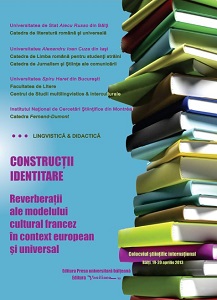L’EUROLECTE ET LES CHANGEMENTS
APRÈS LE TRAITÉ DE LISBONNE.
UN NOUVEAU LANGUAGE
DANS L’ESPACE EUROPÉEN
The Eurolecte and the Changes after the Treaty of Lisbon.
A New Language in the European Area
Author(s): Sebastian Chirimbu
Subject(s): Language and Literature Studies
Published by: Editura Vasiliana ’98
Summary/Abstract: Under the influence of extralinguistic factors, all terminologiesare characterized by a faster rate than general vocabulary. Thecauses favoring the emergence of new legal concepts areespecially social needs and the harmonization of legislation withthe EU/international legal regulations. The emergence of newterms is unpredictable. Therefore, the legal terminology is not ina stable condition, as one might think because of hisconservatism, but a continuous process of change. Specializedlanguage used by the EU institutions can be characterized asone with its own domain, defining itself as such in the dynamicrelationship between terminology and relatively static nature ofthe referential framework of the Member States.
- Page Range: 237-249
- Page Count: 12
- Publication Year: 2014
- Language: French
- Content File-PDF

